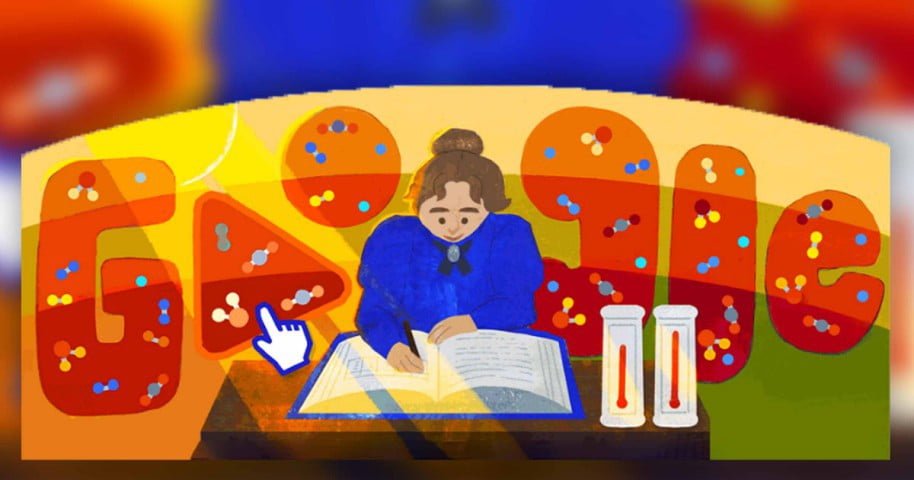The fight against climate change is considerably older than you might imagine, with the germ of modern climate science snaking its way through academic history to a name you may not have heard of: Eunice Newton Foote.
Foote was a feminist activist. She was the first woman to have her research published in a physics journal. She proposed what would subsequently become the general public’s primary metric for measuring climate change. She was also born in 1819, which may come as a surprise.
Most importantly, Foote’s research demonstrates that we have long suspected that the Earth’s climate is susceptible to human activity. Foote’s 1856 study “Circumstances Controlling the Heat of Sun’s Rays” set the groundwork for most of our present understanding of atmospheric warming, positing that variations in carbon dioxide might alter Earth’s temperature. Three years later, John Tyndall, a scientist, would be recognised with laying the groundwork for climate science. Foote’s research was mostly overlooked for more than a century after her death, until the scientific world began to recognise her early contributions in the 2010s.

All of this to say, individuals visiting the Google homepage on July 17 may want to click on the brilliantly coloured graphic. On her 204th birthday, the 19th-century scientist is being honoured for her role in developing climate science as we know it, recognising her foresight and others who carry on her legacy today.
Google’s homepage Doodle, which displays Foote at work with the two glass cylinders she used to experiment with carbon dioxide, redirects users to a brief movie on her accomplishments as well as a Google blog authored by Kate Brandt, Google’s chief sustainability officer. In addition to Foote, the firm said today that it will provide specific financing and support to six women leaders in the field of climate science and preservation.
“These trailblazers are educating the public, developing solutions to minimise the effects of climate change, and lobbying for policies that will help protect our world,” Brandt said.
Among those honoured are Dr. Anna Liljedahl, an associate scientist at Woodwell Climate Research Center who studies the effects of climate change on the Arctic ecosystem; Clara Rowe, CEO of restoration and conservation data network Restor; Dr. Alysia Garmulewicz and Liz Corbin, co-founders of open-source regenerative materials organisation Materiom; Heidi Binko, founder of the Just Transition Fund; and Angie Fyfe, executive director of ICLEI
“Nature restoration has enormous potential for climate, biodiversity, and humans,” Rowe wrote. “In order to realise that potential, you really need to bring everyone participating in that effort together, ensuring that more people can become involved, and that we have a clear picture of what’s going on where.”
Google.org, the company’s charitable arm, is already behind many of these initiatives, including the open-source networks Restor and Materiom, as well as the ICLEI USA Action Fund.
It is also providing an additional $5 million to Liljedahl and the Woodwell Research Center in order to support the organization’s three-year deployment of an AI tool that will track arctic permafrost thaw in near-real-time for the first time.
The melting of global permafrost creates a great deal of uncertainty in climate studies, since thawing ice releases bacteria, chemicals, and other substances into our atmosphere. Understanding this melt is especially important as extreme weather and climate-related calamities become more common. Woodwell has already begun to visualise thaw trends using its Permafrost Discovery Gateway (PDG).
“As the Arctic warms at nearly four times the global rate, the permafrost — or ground that has remained below zero degrees Celsius for at least two consecutive years — that underpins much of the region is rapidly thawing, causing widespread ground collapse and infrastructure damage, threatening Arctic communities, and releasing carbon into the atmosphere,” Woodwell said in a statement.
“This Google.org money will help us unleash fundamentally new technology capabilities in how we perform science and, eventually, what science itself can do,” Liljedahl added.
The grant is part of Google.org’s fellowship programme and the Impact Challenge on Climate Innovation, a $30 million pledge to fund large-scale projects that accelerate technical improvements in climate knowledge and action.
“I’m not sure Eunice Newton Foote could have anticipated what technology looks like today,” Liljedahl said, “but I think she would be thrilled to see how many women are now leading the way in safeguarding our world through climate science and exploration.”











